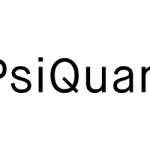Better AI, unhackable communication, spotting submarines: the quantum tech arms race is heating up

(TheConveration.Au.News) Stuart Rollo, Postdoctoral Research Fellow, University of Sydney, authored this analysis of of the role quantum technologies are playing in the struggle for economic and military supremacy between the United States and China. Inside Quantum Technology summarizes below. Rollo explains that the three key areas of technology in the quantum arms race are 1) computing, 2) communications and 3) sensing. His perspectives are well-sourced.
The race is on
China and the US hold a substantial lead in the new quantum race. In 2015 the US was the world’s largest investor in quantum technology, having spent around US$500 million dollars. By 2021 this investment had grown to almost US$2.1 billion”. However, Chinese investment in quantum technology in the same period expanded from US$300 million to an estimated US$13 billion”.
The leaders of the two nations, Joe Biden and Xi Jinping, have both emphasised the importance of quantum technology as a critical national security tool in recent years.
In China, information on quantum security programs is more opaque, but the People’s Liberation Army is known to be supporting quantum research through its own military science academies as well as extensive funding programs into the broader scientific community.
Artificial intelligence and machine learning
Advances in quantum computing could result in advances in artificial intelligence and machine learning which may also confer a major advantage in carrying out (and defending against) cyber attacks on both civilian and military infrastructure.
Unhackable communication
Quantum communication systems can be completely secure and unhackable. Quantum communication is also required for networking quantum computers, which is expected to enhance quantum computational power exponentially.
China is the clear global leader here. A quantum communication network using ground and satellite connections already links Beijing, Shanghai, Jinan and Heifei. China’s prioritisation of secure quantum communications is likely linked to revelations of US covert global surveillance operations.
More powerful sensors
Quantum computing and communications hold out the promise of future advantage, but the quantum technology closest to military deployment today is quantum sensing.
Superconducting quantum interference devices (or SQUIDs), which can make extremely sensitive measurements of magnetic fields, are expected to make it easier to detect submarines underwater in the near future.
At present, undetectable submarines armed with nuclear missiles are regarded as an essential deterrent against nuclear war because they could survive an attack on their home country and retaliate against the attacker. Networks of more advanced SQUIDs could make these submarines more detectable (and vulnerable) in the future, upsetting the balance of nuclear deterrence and the logic of mutually assured destruction.
New technologies, new arrangements
The US is integrating quantum cooperation agreements into existing alliances such as NATO, as well as into more recent strategic arrangements such as the Australia–UK–US AUKUS security pact and the Quadrilateral Security Dialogue (“the Quad”) between Australia, India, Japan, and the US.
China already cooperates with Russia in many areas of technology, and events may well propel closer quantum cooperation.
In the Cold War between the US and the USSR, nuclear weapons were the transformative technology. International standards and agreements were developed to regulate them and ensure some measure of safety and predictability.
In much the same way, new accords and arrangements will be needed as the quantum arms race heats up.
Sandra K. Helsel, Ph.D. has been researching and reporting on frontier technologies since 1990. She has her Ph.D. from University of Arizona.



















